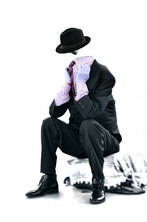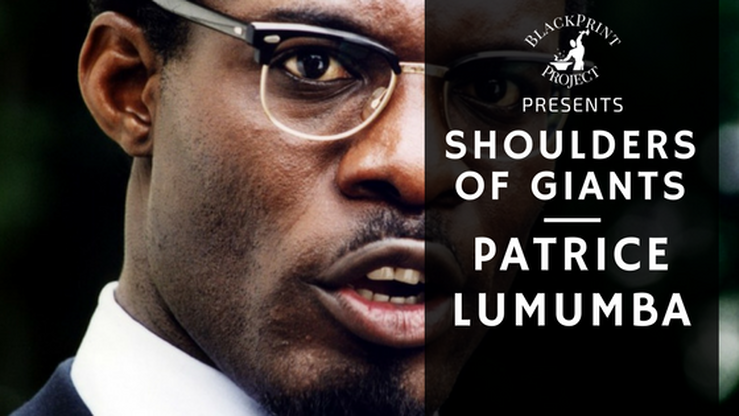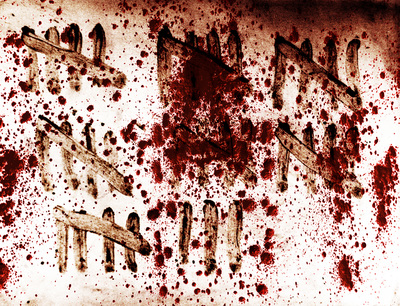|
September 15, 2015
|
From the Inkwell of: Bartholomew J. Worthington III
|
|
The boy who would become the first democratically elected leader of the Democratic Republic of the Congo was born Patrice Emery Lumumba, on July 2, 1925 in Onalua, then the Belgian Congo.
The young Patrice would attend Protestant and Catholic missionary schools where he developed a thirst for knowledge and a love for reading. Many of Patrice's teachers would lend him books to help foster his educational advancement. Upon completion of his formal education, Patrice obtained a position as a postal service clerk in the 1040s. He would also serve as an accountant in the post office in Stanleyville (current day Kisangani). During his early career, Patrice began to write poetry and essays for Congolese journals. He also applied for and was granted full Belgian citizenship.
Lumumba would become involved with the Congolese trade union of government workers, which, unlike other unions, was unaffiliated with Belgian controlled trade union federations. In 1956, Lumumba would be invited to study in Belgium, but upon his return he was arrested and charged with embezzlement from the post office. He would subsequently be convicted and sentenced to a year in prison. Upon his release, Lumumba would become increasingly involved in politics. In conjunction with other Congolese leaders, he founded the Congolese National Movement (Movement National Congolais; MNC) the nation's first Congolese centric political party. Previously, political affiliations had been determined based on ethnic and regional origins. Lumumba would attend the first All African People's Conference in Accra, Ghana in December of 1958. It was at this event that he would meet nationalists from all over the continent and also be assigned as a member of the permanent organization established at the conference. Belgium, who had ruled the Congo with some of the most brutally repressive tactics, sensed the increased nationalist temperament, and announced plans to implement a program to establish an independent Congo. Many nationalists regarded the proposed elections as simply a way for Belgium to establish a puppet government, so they announced plans to boycott the elections. The resulting Belgian crackdown was heavy handed, and on October 30, a clash in the MNC power seat of Stanleyville resulted in 30 deaths. Belgian authorities would arrest Lumumba on charges of inciting a riot. This caused the MNC to rethink its strategy. It decided to enter the elections and won an overwhelming 90% of the Stanleyville votes. In January 1960, the Belgian government convened a conference to discuss the organization of the Congolese government. The MNC refused to participate in the negotiations without Lumumba, so Patrice was released from prison and flown to Brussels. The conference would set the date for Congolese independence as June 30, and the date for national elections in May. The MNC went on to garner a significant share of the votes in the Congo's first national election. As its leader Lumumba would become the leading nationalist politician of the newborn nation, and its first elected Prime Minister. Belgium tried, unsuccessfully, to prevent the MNC assumption of power, but on June 23, 1960, Lumumba began the process of forming the nation's first government. The 35 year old Lumumba would encounter crisis immediately as Belgium backed a secession of the resource rich region of Katanga. Lumumba would appeal to the United Nations for support and assistance, but they turned their backs on the new government. In desperation, Lumumba reached out to the Soviet Union for assistance in bringing the secessionists to heel. This would ignite a power struggle which saw Lumumba being dismissed by President Kasavubu in September 1960. He would be reinstated by the National Assembly, but by this time, a small faction of the military, led by Joseph Mobutu, an agent of both the CIA and Belgium, seized control of the government and placed Lumumba under house arrest. Lumumba would be transferred to the custody of Belgian officials in the Belgian controlled Katanga region, where he was tortured and on January 17, 1961, murdered by a firing squad commanded by a Belgian officer. Four days after being buried, Belgian police commissioner, Gerard Goete and his brother dub up Lumumba's body, chopped it into pieces, and dissolved the pieces in sulfuric acid. 3 Lessons
"The day will come when history will speak. But it will not be the history which will be taught in Brussels, Paris, Washington or the United Nations.
|
Popular Articles

Bartholomew J. Worthington III is an anti-establishmentarianist Renaissentrepreneur who absolutely despises authority figures and envisions his dreams in Ultra HD. An Activist, Author and Entrepreneurship Evangelist, he relishes spreading the gospel of Business Ownership.
Connect with Bartholomew J. Worthington on Twitter, Facebook, LinkedIn. |






